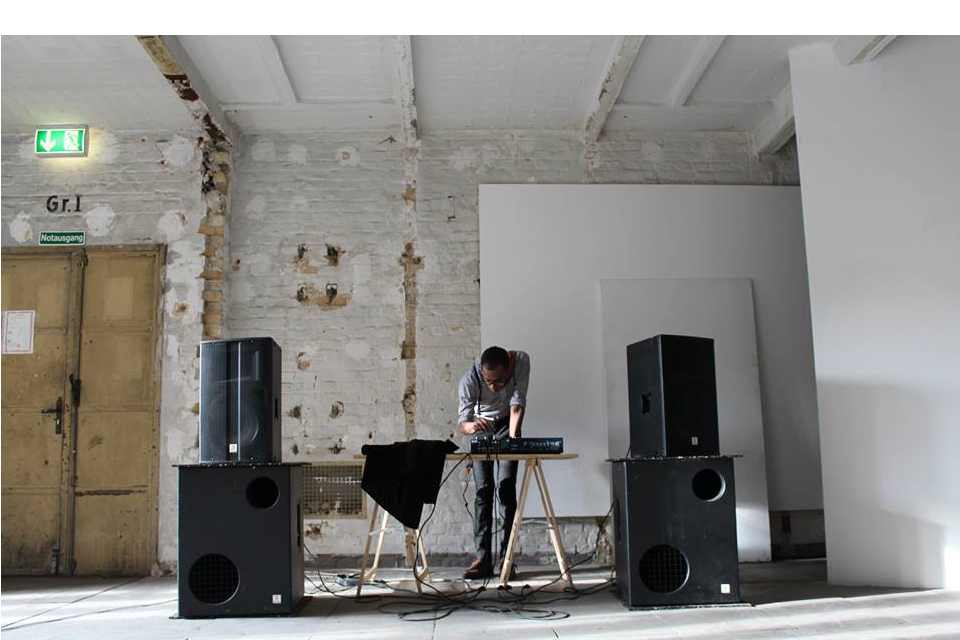Ismael Ogando's Erzulie Dantor

From a very young age, Ismael Ogando engaged as an activist, developing public interventions at the urban space of his birthplace in the Dominican Republic, related to institutional corruption, racialization, homophobia and gender violence. He currently is based in Berlin where he has created, developed, and managed the archive platform and documentation center for SAVVY Contemporary. Ogando currently works as editor-in-chief for GROUND Magazine. Learn about Ogando's 2015 Ghetto Biennale Altar installation below:
Artist Statement:
The piece Altar was firstly conceptualized throughout an archive revisionist research I started in 2013, which I finished in the winter of 2014 while working as curator and archivist in Berlin.
I was curious on how the Czarna Madonna icon travelled to Haiti, being the Black Madonna of Czestochowa the main catholic icon in Poland.
Through the research I discovered a Polish legion was sent by Napoleon Bonaparte to then Saint Domingue, now Haiti during the slave revolt that later was known as the Haitian Revolution.
As a dominican born individual these narratives concerning Haiti are denied, in fact they are stated in the official history books in dominican Republic as a historical crisis, since the books are written from the Spanish colonial perspective, Dominicans get to know this period of History as the Haitian invasion of the Dominican Republic.
This legitimized account of history is the excuse to support the anti-Haitian sentiments in the dominican Psyche.
I presented the piece firstly at the (Breslau) Wroclaw Media art biennale, but it was not accepted due to the sensitive emotions of Poland towards Art representing or dealing with Catholicism. But I thought of presenting the piece for the Ghetto Biennale, given that it seemed a more accurate and powerful platform for such a concept.
I was distressed by the Polish Pavilion at the last Venice Biennale in the sense of how the artists C.T. Jasper & Joanna Malinowska approached the topic. It seemed like Poland had big impact in Haitian culture: I totally disagree, and found that the points or facts raised by the intention of their piece lacked accuracy. Poland has no influence in Haiti’s culture, not even in the locality where the descendent of the polish soldiers are living today. It is the matter of a linguistic slippage concerning the concept of Halka/Haiti that distresses me the most. When they state that they are exploring the Haitian connections to Poland, it should be stated as a Polish connection to Haiti. The former version represents an archetypaly Eurocentric perspective.
I also wanted to make the link to the xenophobic wave in the Dominican Republic to this lack of accuracy in history and call for a revisionist critique of what we understand to be a legitimate account of history.
The piece, was not able to be installed as was intended, due to the lack of funding, but nonetheless the main intention with the piece is to use my agency as Dominican, although I live in Germany, to state that the fragmentation of the island is nothing other than a bipolar colonial aftermath, as in the case of Cameroon for instance, where the territory delimited first by Germany was later divided by the British empire and the French Crown into a francophone and an Anglophone Cameroon.
I wanted to dismantle such identity constructions remarking them as colonial legacies, joining in my project a Haitian national. And for this, the piece works in a hybrid form taking the original language of the revolution; kreyol transcribed into a western european form of operatic Aria, sung by David Etienne in order to be understood by the west.
In this sense a Dominican Haitian collaboration comes into shape. Using the primal source of empowerment of the Haitian nation; vodou. As the piece sang by David Etienne is a popular song for the deity invoked the night the slave revolt started, the petro lwa Erzulie Dantor.
RELATED PROGRAMS

Ghetto Biennale: Radyo Shak
RADIO SERIES
Radyo Shak was the independent broadcast voice of the Ghetto Biennale of Haiti, hosting freeform radio including Rara bands, locals, artists and writers, and Haitian revolutionary history.
more 





